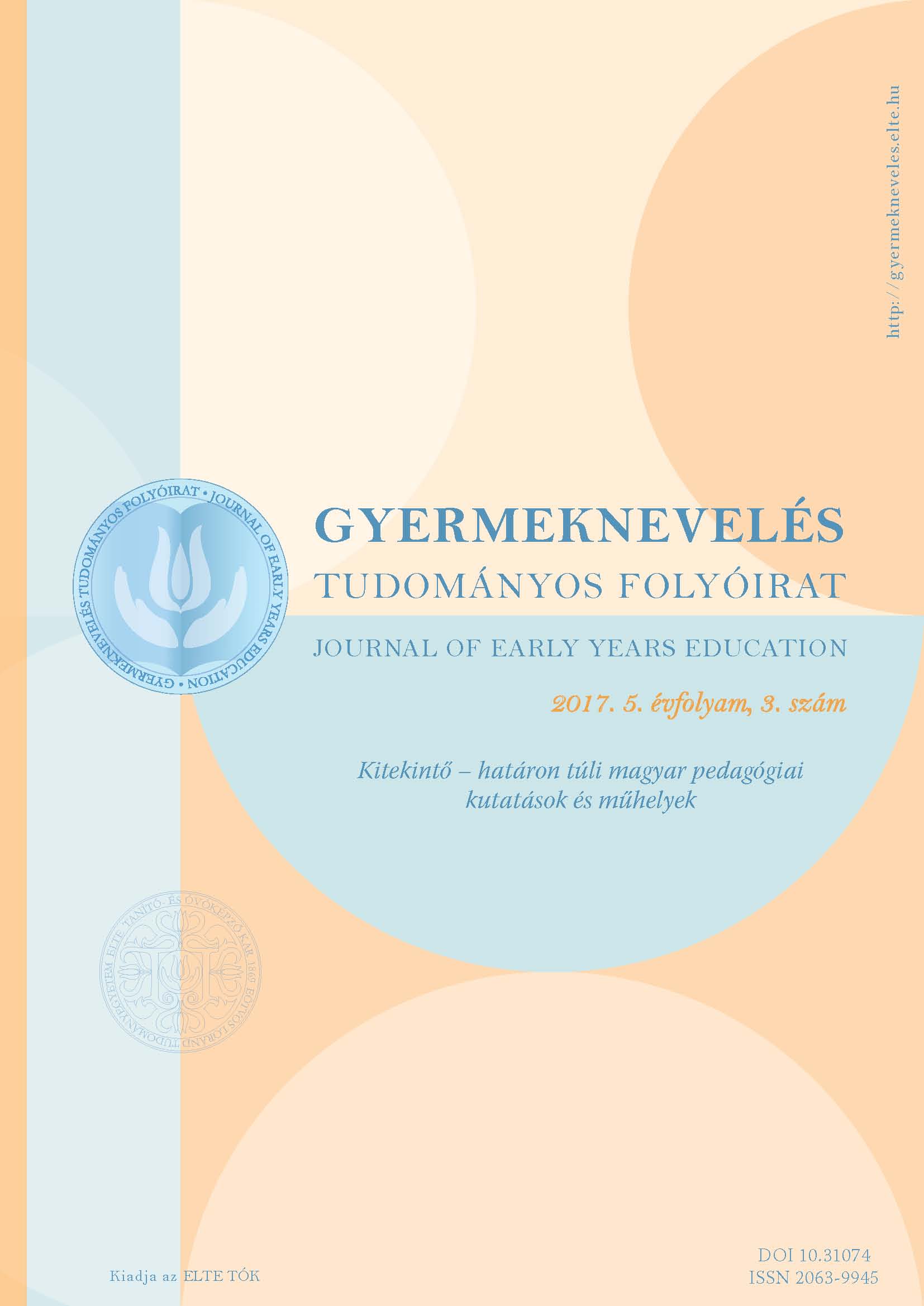The role of history and culture knowledge in forming identity at elementary school children
DOI:
https://doi.org/10.31074/gyntf.2017.3.29.38Keywords:
memory, historical knowledge, cultural knowledge, collective memory, national identityAbstract
After our basic needs the second most important is security, the need to belong somewhere, to be part of a group, community make us feel secure. At first mall children determine themselves by saying their names, after their sex, showing that they belong to a group. Nobody thought them to belong somewhere, it came by itself. The present study we try to investigate the level of cultural and historical knowledge, although we make an attempt to discover their national identity. We were curious about what 10-11 years History, cultural knowledge, places in our collective memory determine our national identity and national feelings. In the current study we try to understand the connection between historical and cultural knowledeg with national identity and feelings. We would like to have a deeper insight in how childre think about their nationality, what they consider their home country. Participants: 100 children, 50 girls, 50 boys. Participant are learning in Elementary Schools form Kézdivásárhely and from villages close by.
Downloads
Downloads
Published
How to Cite
Issue
Section
License
Copyright (c) 2017 Author

This work is licensed under a Creative Commons Attribution-NonCommercial-ShareAlike 4.0 International License.

